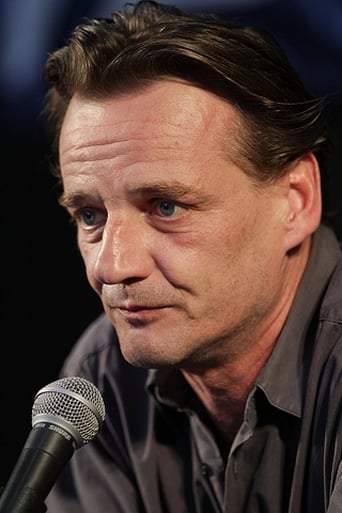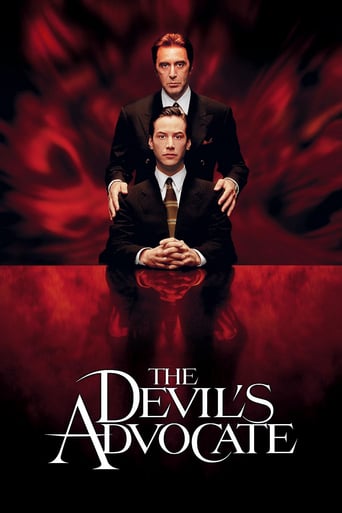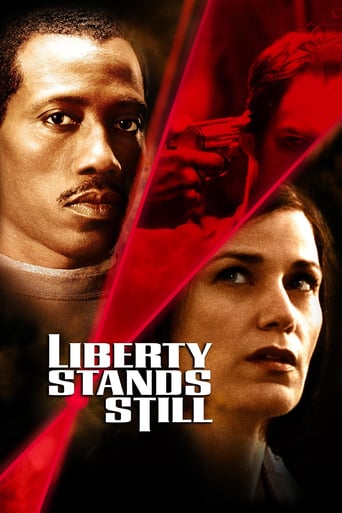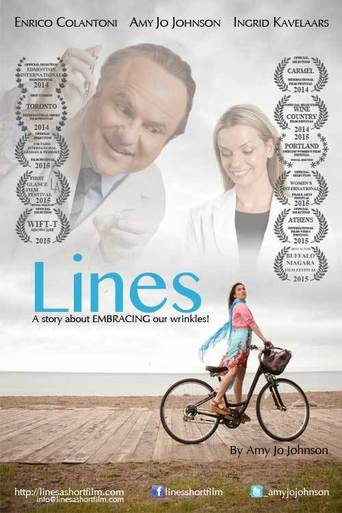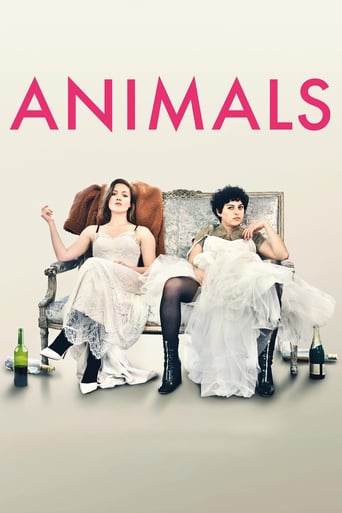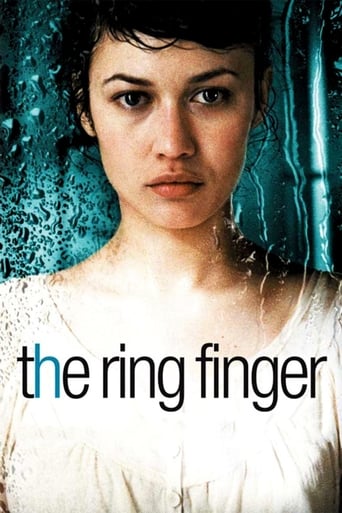
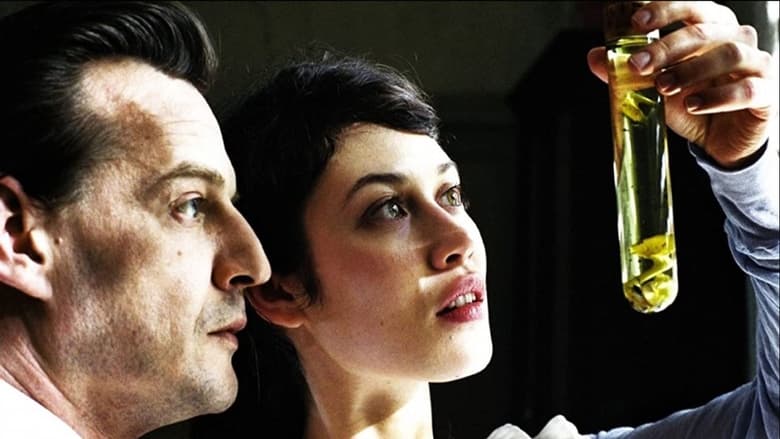
The Ring Finger (2005)
When she is slightly hurt in the factory where she works, Iris quits her job and finds a new one as an assistant in a laboratory of a very peculiar kind. Without fully grasping what is at play around her, she gradually engages in a disturbing love affair with her enigmatic employer.
Watch Trailer
Cast
Similar titles
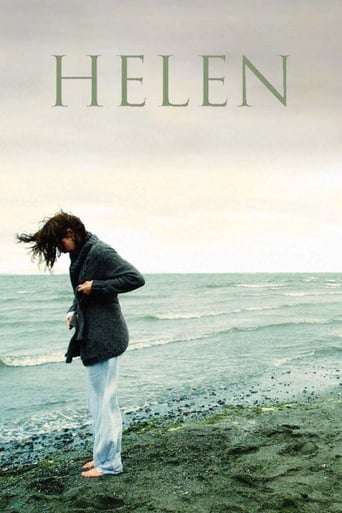
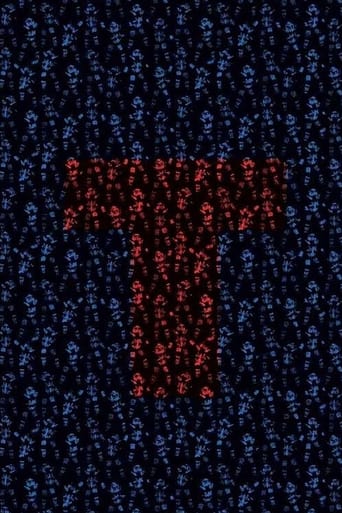
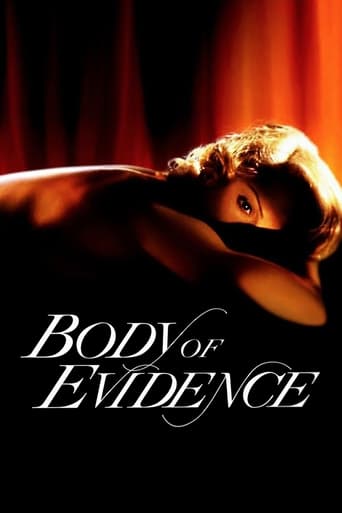

Reviews
I love this movie so much
Please don't spend money on this.
Great movie! If you want to be entertained and have a few good laughs, see this movie. The music is also very good,
The film makes a home in your brain and the only cure is to see it again.
"L'annulaire" ("The Ring Finger") is one o f the strangest films I've ever seen and now that I've seen it, I really have no idea what it was all about or whether I even liked it. I certainly loved parts of the picture. Olga Kurylenko stars as Iris, a woman who loses the tip of her ring finger at the beginning of the story. She then obtains a job working for a VERY strange man who 'conserves' things...though exactly why and what he does with them is very vague. In fact, vagueness is the strong theme throughout the tale. Often people are in scenes but you have no idea who they are and why they're there. Knowing no one's motivations or back stories make for a very odd viewing experience. Plus, often folks do things....and you have no idea why. Iris begins a bizarre sexual relationship with her boss, the conservator....but you have no idea why nor does Iris for that matter. What comes of all this? I have no idea....see the film and decide for yourself.Overall, one of the strangest films I've ever seen and one that is beautifully filmed and directed...though maddeningly vague. I still don't know what I thought of this film, though I do think you should be aware that there is a lot of nudity in the picture...though it didn't seem very provocative nor perverse...just explicit.By the way, throughout the film, Iris perspires a lot and the office where she works has no air conditioning. Her boss tells her to arrange to have air conditioning installed but it never occurs. When she calls, she asks for a 'Mr. Rota'...that is Spanish for 'broken' and I wonder if this choice of names was intentional.
.........................................................from Pasto,Colombia...Via: L.A. CA., CALI, COLOMBIA and ORLANDO, FL Haunting musical score, disturbingly unsettling erotic scenes, perturbing voyeuristic encounters, Olga Kurylenko as eye candy, preserve-and-cherish- those-best-moments-of-your-life metaphors, artistic and interesting visuals...Put all these diverse elements into a cinematic blender and what do you get? A Film-Making 101 textbook example of the total being LESS than the sum of its parts! I've been asking myself the "What is this?" question incessantly for hours since spending 90 minutes as a "voyeur" of this experiment. As yet, there doesn't seem to be an answer.The director, Diane Bertrand, seems to be assiduously and blatantly giving us the title (sans "Ring") for the duration. The film revolves around a mysterious "clinic" where people go to have important life-relics "preserved"...In theory, at least. In practice, these supposedly priceless articles are soon forgotten about. It's difficult to empathize with any of the characters in the film because they're all so creepy, to one extent or another. Even Kurylenko's character is more off-putting than not.The supposedly "erotic" scenes are reminiscent of watching someone getting violated by their orthodontist during a root canal procedure. A rather self- indulgent piece of film-making, it's not hard to imagine dozens of Director Bertrand's friends gathered at her home for a private screening shouting "C'est Magnifique!" and "Incroyable!" afterward! As if this weren't enough, many segments are painfully languidly paced. "Finger" might have fared a little better after a second viewing, but I'm not motivated in the least to see it again.3.5*....ENJOY/DISFUTELA???...(If You Can Manage!) Any comments, questions or observations, in English o en Español, are most welcome!....
A city with no name, a young woman with no history, a house apart - a strange island in a sea of trees. I like the lack of references to anything external to this system. The world of this movie is airtight. I'm reminded of the famous story retold by W. Somerset Maugham, "Appointment in Samarra", where a man, upon bumping into Death in the streets of Baghdad, flees to Samarra to avoid his wrath, but instead runs into Death who is waiting for him in Samarra, and whose anger at the jostling in Baghdad is revealed to have been mere surprise, as he had been expecting to see the man in Samarra later in the day. The sealed nature of this film demands a focus on inevitability.A young woman, Iris, wanders alone in the port area of the city, along superannuated towpaths, past the gigantic hulks of international shipping; outside of work the closest she comes to really being with others is staring at prostitutes behind plate glass, or contemplating entering a bar. There's something brutal about the isolation of Iris by the filmmaker. When I reviewed In The City of Sylvia, similarly a beautiful movie with an isolated character, I said that the filmmaker should either have won the Golden Lion at Venice or have been brutally murdered; I've similar feelings here.Today is Sunday and I've been sat in a deserted office building writing this review, ostensibly here to study for exams, but procrastinating somewhat. The morning streets are almost empty, a white contrail hints at faraway adventures that I'll never be part of, the river is full of empty boats. There is nothing good about being alone; the beauty of it is only a subtle form of cruelty.The soundtrack of the movie is done by Beth Gibbons of Portishead; its fractured entropised lilt is just right; you only ever catch fragments of lyrics.Iris gets work as the sole employee in the strange set aside laboratory. The laboratory offers a simple service whereby people may come and, for a fee, have items preserved and stored away. This seems quite a perverse thing to do. Memory, which it seems this film is about, IS perverse. Recently I wrote three poems to a woman I love, who I later learnt has no desire to be with me, I never gave them to her. A colleague tells me I should burn them, and that is perhaps the best thing to do, but perversity wills me to preserve them, to torture myself. Memory becomes viscous ooze in which you are trapped, finally it solidifies and turns into amber. People (mostly children) who can live in the moment, truly do not know how lucky they are.Some have called the film erotic, however the erotic whilst present, is as intangible as a passing cloud on a sunny day. Marc Barbé's conserver remains inscrutable and devoid of passion during sex scenes. Sex scenes with him are no more or less sensual than seeing a spider cocooning a fly, trapped for inclusion in its larder. One quite disturbing picture from above shows us an image of his head on Iris' body, he is merely consuming her.Other aspects of the erotic are fetishistic, the focus on the shoes that Iris is made to wear for her work, her clothing, which the sailor who sleeps in her room in the morning feels and smells in her absence. The movie brought to mind for me Magritte's two famous fetishistic paintings, The Red Model, and Philosophy in the Boudoir, both of which show clothing suggesting the female form. (Philosophy in the Boudoir also came to mind during In The City of Sylvia).Mahjong came into play as it does in all good surreal movies (cross-reference to Robbe-Grillet's The Blue Villa). You could if you want see Iris as a flower tile, and the laboratory door as the white dragon tile (which is a blank tile in Mahjong, or blankness with a rectangular border). These are symbolic, but I don't want to spoil the movie by mentioning how.Do not watch this movie, arrange to have all copies burnt!
I saw this film at the 2005 Toronto International Film Festival.L'Annulaire is the second feature film from director Diane Bertrand, who also wrote the screenplay for this adaptation of Yoko Ogawa's novel.The film follows Iris (Olga Kurylenko), who moves to a port town after cutting off the tip of her ring finger in an industrial accident. She quickly finds lodging in a hotel down by the harbour, but is forced to share a room with a sailor who works at night and sleeps while she is out in the day. While searching for work, by chance she comes across an old girls' school that now houses a man (Marc Barbe) who preserves and stores personal artifacts that people bring to him.Taking a job as the man's office assistant, she soon becomes involved in a sort of relationship with him, while at the same time being intrigued by the sailor (Stipe Erceg), whom she only knows through the things left in their shared room.The movie, filmed in Hamburg and just outside Paris, is beautifully shot. Bertrand favours many tight shots of the characters, giving a more intimate feel to many of the moments in the film. Noah Cowan, the co-director of the festival, described the film as combining the contemplative feel of Asian cinema with the sexual energy of European cinema. Thus, the film is very spare in its dialogue, leaving only the words that are spoken and the looks between characters as the framework on which to interpret the story.The preservation of personal artifacts in the film causes one to wonder about the nature of memories, loss, and the desire or need to move on, extending even to Iris' own life. This helps to draw the viewer into what is a very quiet and meditative film.I found the actress playing Iris was quite good, especially given that it was her first film and that she had to communicate so much non-verbally. A few of the scenes between her and the preservationist were charged with a lot of sensual energy, even in something as simple as him putting a pair of shoes on her feet.Notes from the Q&A with director Diane Bertrand: - L'Annulaire is very open-ended, and Bertrand herself admitted the film doesn't give any answers; the audience can imagine what it wants.She tried to be faithful to the novel, but it is very short. Bertrand added the sub-plot with the sailor.When asked why she adapted this novel, Bertrand said when she first read the book, she couldn't stop, and had all these images in her head, which was unusual since the atmosphere in the book is not European. But even upon re-reading the novel she still had the same feelings. She felt aspirations to explore the desire, love, and mysteries of the story.Olga Kurylenko is from the Ukraine, and this was her first film, thus making it difficult to obtain financing. Thus, there was lots of time for her to work on her character; Bertrand asked her to watch lots of films and read a lot of books. Kurylenko felt a bond to the character.The director of photography is also a photographer, which accounts for the look of the film.Bertrand wanted to film something slow like a painting, to make the audience feel as though they are watching moving images.Minor spoilers below:Bertrand had less direction for Marc Barbe, but she did ask him to not play his scenes with Kurylenko like he wanted to seduce her, even though the character seems to know exactly what she needs. Iris is supposed to feel that he sees inside her as soon as they meet. Barbe agreed that the character does not need to explain himself.In the novel, the shoes which play an important role in the story are black, not red, however Bertrand has a bit of an obsession with the colour red.Bertrand feels the story really starts with the scene where the preservationist puts the shoes on Iris' feet. It is Ogawa's theme that Iris has a feeling of being possessed by the shoes. But when Barbe's character tells Iris that she can't take the shoes off, she gives him a quick look that says "ok, so you want to play this game" and decides to do it, preferring to live something rather than nothing.

